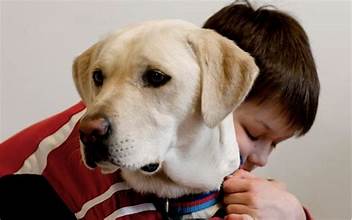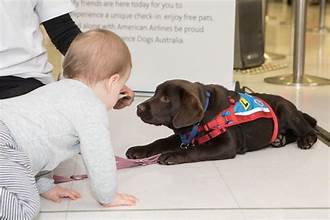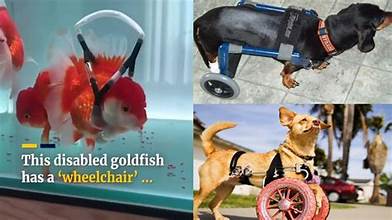A Compassionate Guide to Understanding What Happens and What to Do Next
If you or someone you care about is considering getting a service dog, or already relies on one, you might have this concern:
“What happens if a service dog bites someone?”
That’s a very real and essential question, mainly when that dog is meant to help and comfort, not cause harm. As someone who deeply understands the value of companion animals in homes with children, seniors, or people with disabilities, I want to gently walk you through what this situation means, what could happen, and how to handle it with care.
🐕 First, Understand: Service Dogs Are Not Perfect
While service dogs are trained extensively to behave calmly and professionally in public, they are still dogs—living creatures with instincts, fears, and boundaries. Even with the best training, they can become startled, feel threatened, or misinterpret a person’s actions.

However, it’s rare for a fully trained service dog to bite. If it happens, there are usually warning signs leading up to the incident that may have been missed or misunderstood.
⚖️ Are There Legal Consequences If a Service Dog Bites?
Yes, and here’s where it gets serious:

A service dog is held to a higher behavioral standard. If that dog becomes aggressive or bites someone, there can be consequences, especially in a public setting.
Depending on the situation, local laws might:
- Require the dog to be removed from service
- Mandate a behavior evaluation or quarantine.
- Result in legal action, especially if the injury is severe
Under the Americans with Disabilities Act (ADA), a business or public entity can legally ask a service dog to leave if it is out of control or not housebroken. This includes aggressive behavior or biting. And yes, even if the dog is a fully trained service animal.
🧩 Why Might a Service Dog Bite?
Some possible reasons include:
- Fear or pain – If someone touches a sore spot or approaches too quickly
- Overstimulation – Loud, chaotic environments can cause stress
- Poor training or fraudulent registration – Sadly, some people try to pass off untrained pets as service animals
- Protective instinct – Especially around children with disabilities, some dogs may misread interactions as threats.
✅ What Should You Do If It Happens?
If your service dog bites someone:

- Immediately remove the dog from the situation. Keep everyone calm and safe.
- Seek medical attention for the person bitten, no matter how minor it seems.
- Exchange information with the person affected, including proof of vaccination for your dog.
- Contact your dog’s training organization (if applicable) for guidance.
- Consult your veterinarian and possibly a behaviorist to assess what may have caused the bite.
- Report the bite to local animal control if required in your area.
If the dog has ongoing behavior concerns, it may need to be temporarily removed from service until retraining or evaluation can occur.
🐶 Can a Service Dog Be Reinstated After a Bite?
Possibly, but it depends on the severity of the situation and the subsequent actions taken. In some cases, the dog can return to work after:
- Retraining
- A behavior evaluation and clearance
- Close supervision and assurance that the behavior won’t be repeated.
However, in other cases, the dog may need to be retired for the safety of everyone involved.
❤️ How to Help Prevent This in the First Place

- Know your dog’s limits. Watch for stress signals, such as yawning, avoiding eye contact, shaking off, or a stiff posture.
- Use positive reinforcement training consistently.
- Avoid overstimulating environments if your dog isn’t ready for them.
- Ensure children understand how to interact with service animals in a respectful and gentle manner.
- Stay up to date on health checks and behavior assessments. Pain can lead to unexpected reactions.
🌈 Final Thoughts
If you’re feeling scared or discouraged by this topic, I want you to take a deep breath. Having a service dog is a beautiful journey, but like all relationships, it comes with responsibilities and sometimes bumps in the road.
If a bite happens, it doesn’t automatically mean your dog is “bad” or that you’ve failed. It means it’s time to reassess, retrain, and protect your helper and those around you.
And if you’re still researching service animals for your child or loved one, thank you. You’re doing something beautiful, brave, and kind. 💛




